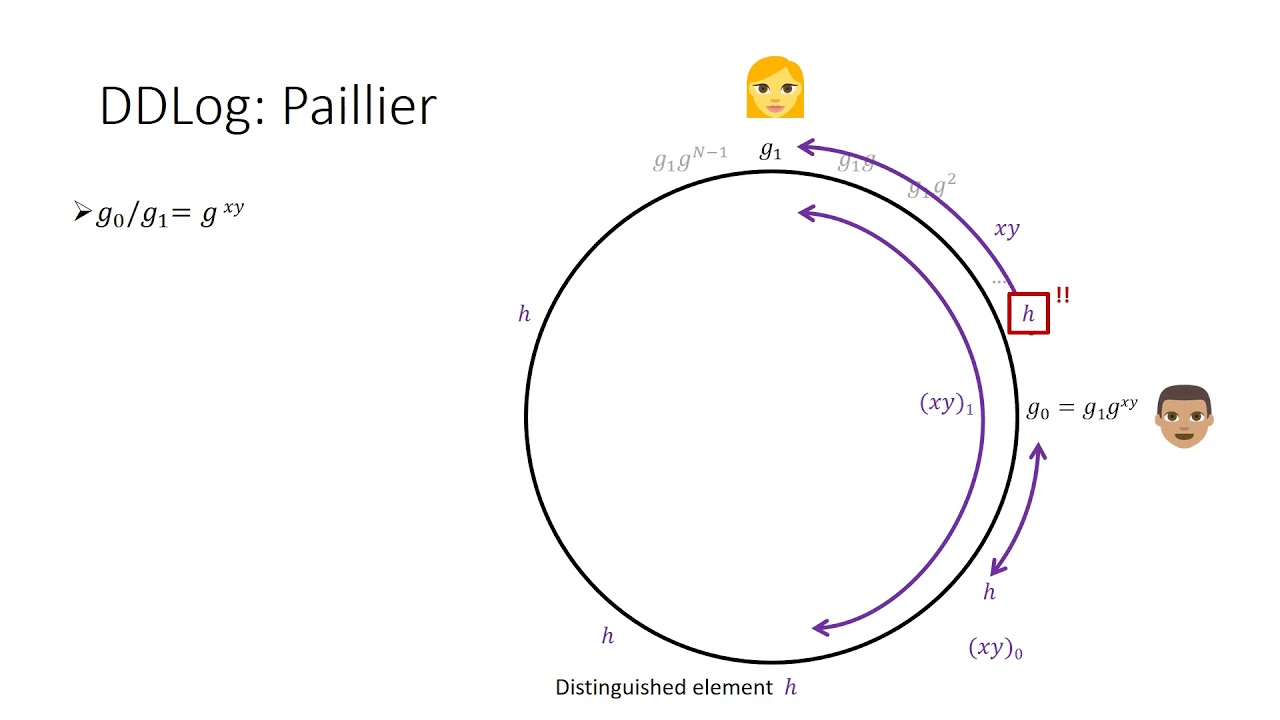Welcome to the resource topic for 2021/262
Title:
The Rise of Paillier: Homomorphic Secret Sharing and Public-Key Silent OT
Authors: Claudio Orlandi, Peter Scholl, Sophia Yakoubov
Abstract:We describe a simple method for solving the distributed discrete logarithm problem in Paillier groups, allowing two parties to locally convert multiplicative shares of a secret (in the exponent) into additive shares. Our algorithm is perfectly correct, unlike previous methods with an inverse polynomial error probability. We obtain the following applications and further results. - Homomorphic secret sharing. We construct homomorphic secret sharing for branching programs with negligible correctness error and supporting exponentially large plaintexts, with security based on the decisional composite residuosity (DCR) assumption. - Correlated pseudorandomness. Pseudorandom correlation functions (PCFs), recently introduced by Boyle et al. (FOCS 2020), allow two parties to obtain a practically unbounded quantity of correlated randomness, given a pair of short, correlated keys. We construct PCFs for the oblivious transfer (OT) and vector oblivious linear evaluation (VOLE) correlations, based on the quadratic residuosity (QR) or DCR assumptions, respectively. We also construct a pseudorandom correlation generator (for producing a bounded number of samples, all at once) for general degree-2 correlations including OLE, based on a combination of (DCR or QR) and the learning parity with noise assumptions. - Public-key silent OT/VOLE. We upgrade our PCF constructions to have a public-key setup, where after independently posting a public key, each party can locally derive its PCF key. This allows completely silent generation of an arbitrary amount of OTs or VOLEs, without any interaction beyond a PKI, based on QR, DCR, a CRS and a random oracle. The public-key setup is based on a novel non-interactive vector OLE protocol, which can be seen as a variant of the Bellare-Micali oblivious transfer protocol.
ePrint: https://eprint.iacr.org/2021/262
Talk: https://www.youtube.com/watch?v=DzpGN2XuteY
Slides: https://iacr.org/submit/files/slides/2021/eurocrypt/eurocrypt2021/235/slides.pdf
See all topics related to this paper.
Feel free to post resources that are related to this paper below.
Example resources include: implementations, explanation materials, talks, slides, links to previous discussions on other websites.
For more information, see the rules for Resource Topics .
